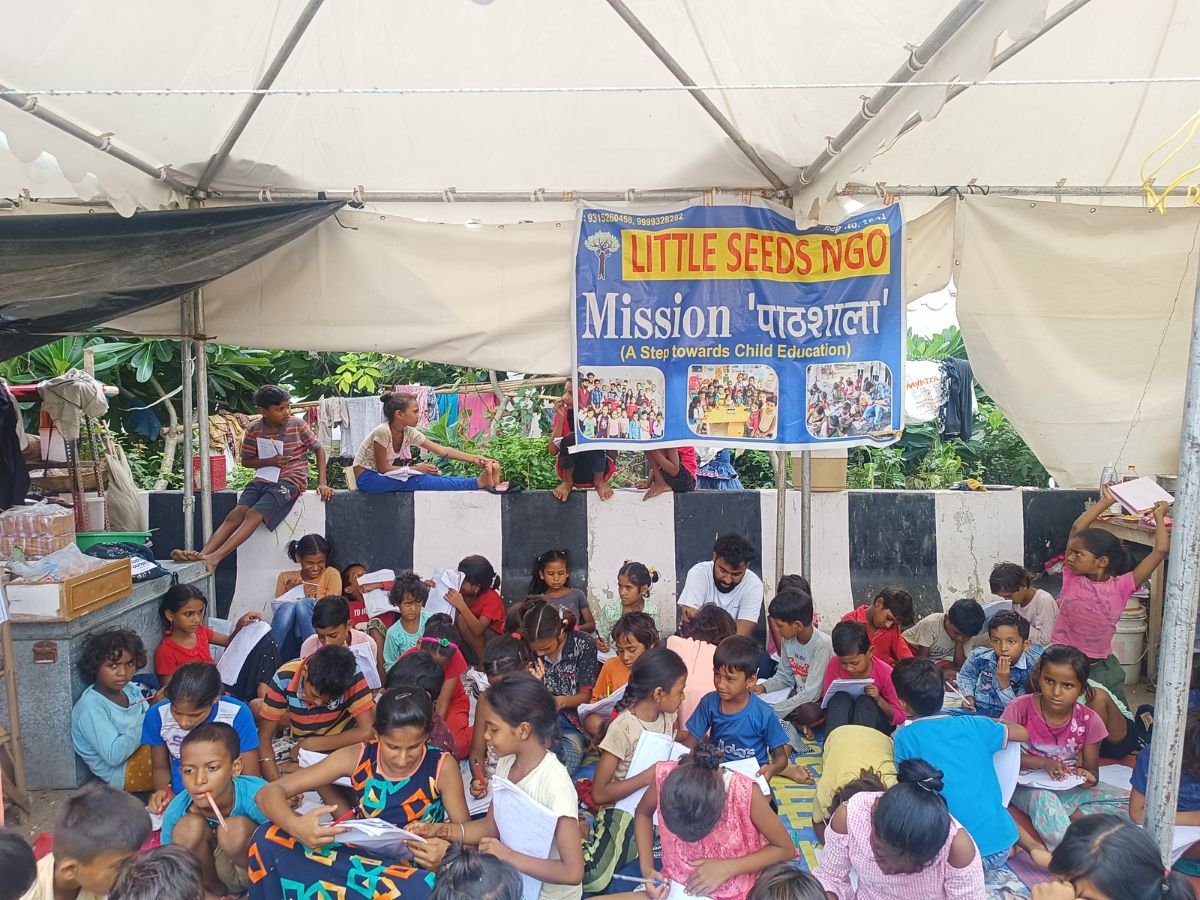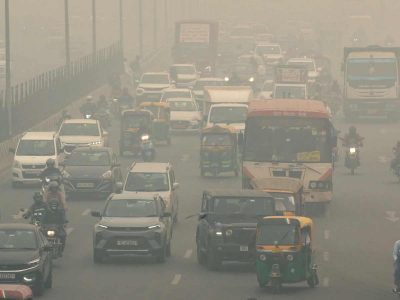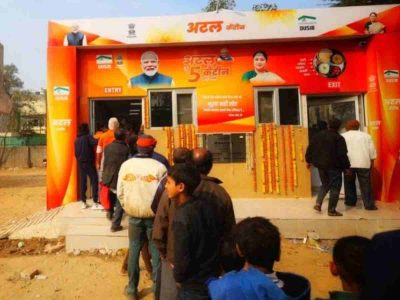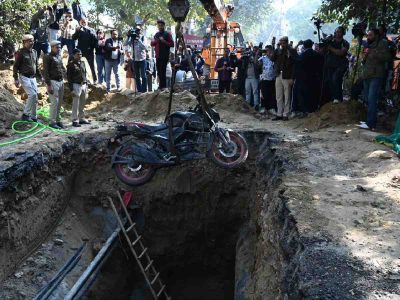Amid incessant rainfall over the past few weeks, there has been a surge in conjunctivitis cases in Delhi-NCR. The relief camps with inadequate facilities have also become hotbeds for the spread of this contagious infection.
Shivam, a 16-year-old, has been living in the Mayur Vihar flood relief camp under the flyover for over 15 days now with his family of 10 ever since the Yamuna got flooded.
Last week, Shivam’s family contracted conjunctivitis — a virus which causes redness, swelling and itching in the eyes. Soon everyone, including him, had red teary eyes.
“They put eye drops only once in a day. My brother bought the eye-drop for me from the nearby government dispensary,” says Shivam showing a small white dropper with rose water.
“My brother first got it. Then my father and later me. My mother still has red itchy eyes,” explained Shivam pointing to his mother. “I keep on insisting her to use the eye-drops, but she refuses,” he says, seeing her mother washing clothes near the camp.
“I do not like those eye-drops. I went to the doctor in the relief camp just once, yesterday,” says Premlata, constantly cleaning her teary eyes with her saree border.
Shivam’s is not the only family grappling with conjunctivitis.
Persistent rain has led to a surge in conjunctivitis cases (pink eye) in various parts of the country, including Delhi, especially those living in relief camps. The symptoms include redness, itchiness, pain, and watery eyes.
Sometimes there is a thick discharge from the eyes. The disease is caused by viruses, bacteria, or allergens that are highly contagious.
Although there is an advisory to avoid conjunctivitis, which states that one should maintain proper hygiene, refrain from rubbing one’s eyes with unclean hands, and avoid sharing items like towels, it is difficult to implement it in cramped makeshift tents where people displaced by the floods are living.
Shivam’s 10-member family lives in a makeshift tent, bathes in the open, making precautions almost impossible.
“We treat around 15 cases of conjunctivitis daily. The numbers are declining compared to last week,” says a doctor in the relief camp who wished to remain anonymous. He claimed that it is a “normal trend”.
The doctor added that for those who previously resided in slums, this arrangement has been more beneficial because relief camps allow them plenty of room to isolate themselves after they contract the disease.
The monsoon season exposes residents of slums to a variety of diseases.
They are frequently forced to share one room with up to 10 other people, which worsens the situation. But this is not currently the case now as there is more space in the camps.
“During last week, about 50% of our children had conjunctivitis. We made them sit separately and also took them to the doctor. Now they all are fine,” said a smiling Abhilash while sitting among 50-odd students. Abhilash runs a school in the camp.
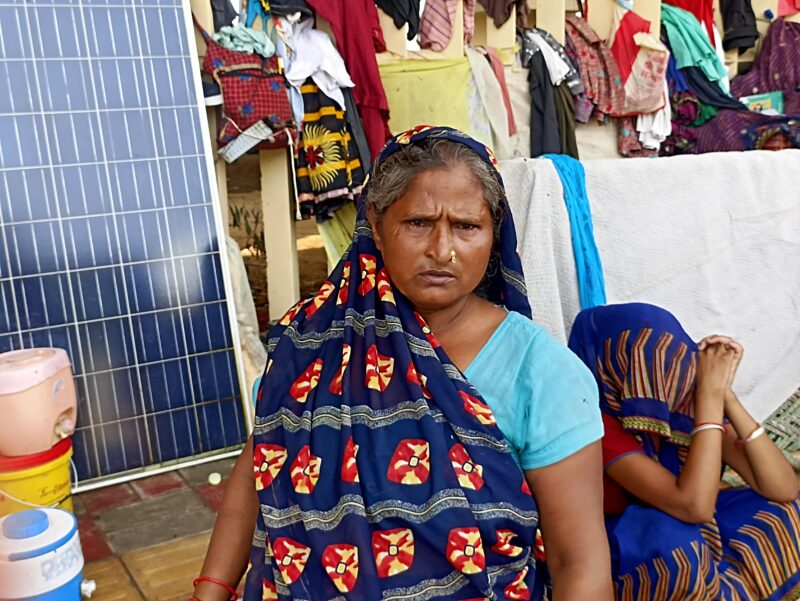
Explaining the reason behind the rise in cases of conjunctivitis, Neera Aggarwal, a Delhi-based ophthalmologist explained to Patriot, “The rising cases of conjunctivitis are typical during this season. However, the recent surge in cases can be linked to the heavy rainfall in the northern regions of the country.
“We are still witnessing about 15-20 cases every day and it is expected to continue for another week or so,” added Neera, who runs a private eye-care hospital.
More than half of the cases are those of children.
“More than half of these cases are children who somehow have come in direct contact with infected individuals. While the overall number of cases is similar to the previous year, there has been a significant increase in conjunctivitis cases among residents living in the floodplains,” she said further.
Earlier this month when the cases started peaking, AAP MLA, Saurabh Bhardwaj highlighted the issue of flu in the cramped relief camps while addressing reporters.

“After flooding, there was a fear of vector-borne diseases like dengue, chikungunya and malaria rising. But that trend is not being seen at the moment. Cases of conjunctivitis and skin allergy are mostly being reported from relief camps,” said Neera.
Shroff Eye Hospital’s Munesh Chandra Bhati, an eye specialist, emphasises the value of taking preventive measures.
“Right now, the cases are under control. We are getting 20 to 30 cases a day, but viruses like these multiply rapidly and can become a bigger health crisis if not treated responsibly,” the doctor said.
Chandra also discussed the general lack of awareness among people, particularly among those living in slums and camps.
“It shouldn’t be the case that people are using eye drops that have been prescribed by chemists. Purchasing medications without a doctor’s prescription can have long-term negative effects on one’s health,” he cautioned.

